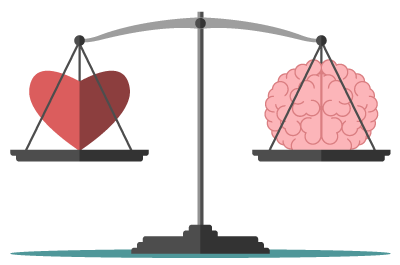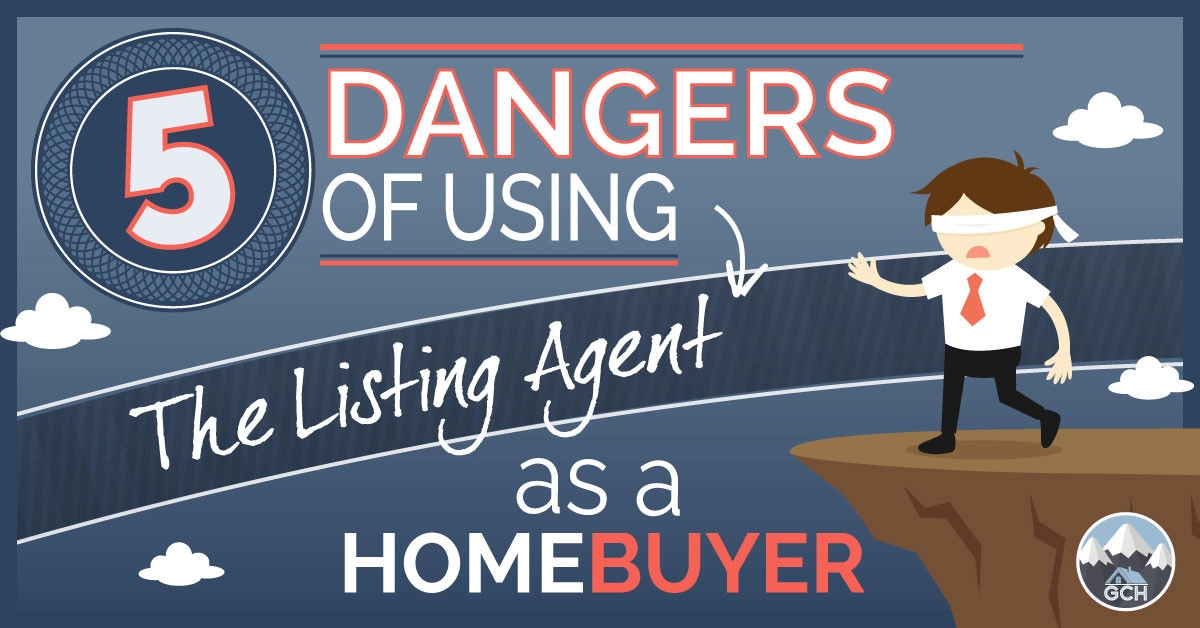Shopping for a home brings out strong emotions and practical thinking. Most buyers hope to find a house that feels right and still makes sense as an investment. It is not always easy to balance what your heart wants with what your mind knows.
When you search for homes, your feelings might pull you toward a charming kitchen or mountain view. At the same time, your head might focus on things like neighborhood schools, resale value, or commute time. Both sides matter, and knowing how they influence you can make the process less stressful.
It is common for couples to experience this push and pull. One might get swept up in the details, while the other looks for smart features or lasting value. Even solo buyers can feel torn between excitement and careful planning. Every buyer, new or experienced, faces this challenge in their own way.
The best approach is to let both emotion and logic guide you. If you focus only on the features you love or only on investment returns, you might feel regret later. I have seen many happy homeowners listen to both their head and heart before making such a big decision.
As you look at homes in our area, remember to check in with yourself. Ask what really matters to you, and how each home matches your needs and budget. This will help you enjoy your search and feel confident when you finally choose your new place to live.
How EMOTIONS Influence Home Buyers
 Buying a home in Colorado Springs can feel like a wild ride. Many buyers walk in and instantly picture life in that space. Sometimes, it is about imagining future holidays, mornings by the window, or kids playing in the backyard. I see this all the time as someone helping people buy and sell homes here.
Buying a home in Colorado Springs can feel like a wild ride. Many buyers walk in and instantly picture life in that space. Sometimes, it is about imagining future holidays, mornings by the window, or kids playing in the backyard. I see this all the time as someone helping people buy and sell homes here.
Emotions can lead people to pick homes that match where they see themselves making memories. When buyers say things like "This deck would be perfect for summer cookouts" or "I can see my family opening presents here," emotions are clearly doing the talking. Home shopping often means thinking about the big moments that might happen there. These feelings are a huge part of why someone finally says yes to one house over another.
Still, thinking with your head matters. Some buyers in Colorado Springs come in with a checklist and want all the facts and figures. They make sure the price is right or the home fits into their plan for the future. A smart move is to balance both kinds of thinking. Let your feelings help you find a home that makes you happy, but use logic to check if it fits your budget and long-term needs too.
If you are considering a move, notice what matters most to you during tours. Jot down things that just feel right and compare them with your must-have list. Both feelings and facts count when making such a big decision. Trusting a real estate agent with true local experience can help you see both sides more clearly in this fast-moving market.
THE PROS OF EMOTIONS
Memories Matter: Living in a home shapes your best moments. You see your house in family photos and remember where each event happened. Homes frame different times in your life. Many people connect each big memory, like birthdays and holidays, to the place where they lived. That is why finding a home that feels comfortable really matters. You are much more likely to love staying in a place that feels right. If you pay attention to your feelings, you will know when a house can truly become your home.
Does the Space Work?: How a house fits your life is just as important as its size. People who listen to their feelings tend to imagine daily life in every room before buying. They think about waking up, having breakfast, and relaxing in the evening. Many people end up moving just because their home no longer fits their needs. A good floor plan can help make sure you are happy with your choice for years. It is smart to look beyond numbers and focus on finding a layout that fits your family’s routine. As someone who has walked through hundreds of Colorado Springs homes with buyers, I have seen that the right layout truly makes a difference.
THE CONS OF EMOTIONS
Quick Choices Can Be Costly: If you let your feelings lead, you might jump on a house too fast. Maybe you hear that other people want it, so you rush to make an offer without checking all the details. Sometimes this means bidding too high or not thinking about what you really need. It is smart to pause and look at the facts before you decide. Take a step back and talk things through with someone you trust or your real estate agent.
Emotional Burnout Happens Fast: Searching for homes takes a lot of energy, especially if each one feels like “the one.” You might get tired and decide to buy a house just because you do not want to search anymore. The home buying process has emotional ups and downs. From waiting for your offer to hearing back about your inspection or loan, it can feel like a roller coaster. Plan for breaks, and let yourself rest if you start to feel drained. Stepping back for a day or two can help you stay clear-headed and make the best choice for your future.
How LOGIC Influences the Home Buyer
 When you search for a new home in Colorado Springs, it’s easy to let feelings lead the way. Bright kitchens and cozy living rooms can leave you excited, but emotions sometimes make buyers overlook real facts. Logic keeps your feet on the ground. Logical home buyers focus on numbers, not just looks. They study the price, location, and value instead of paint colors or shiny new flooring. They know future resale and home data matter most. It is smart to look at more than a home’s charm. This approach can save you money and reduce regret later.
When you search for a new home in Colorado Springs, it’s easy to let feelings lead the way. Bright kitchens and cozy living rooms can leave you excited, but emotions sometimes make buyers overlook real facts. Logic keeps your feet on the ground. Logical home buyers focus on numbers, not just looks. They study the price, location, and value instead of paint colors or shiny new flooring. They know future resale and home data matter most. It is smart to look at more than a home’s charm. This approach can save you money and reduce regret later.
If you want the best possible deal, dig into the details first. Check recent sales in the neighborhood. Learn what other homes have sold for and how fast they are selling. Find out if the house has hidden costs, like high utility bills or pricey HOA fees. A logical buyer studies the numbers and compares them to other homes. Experienced agents in Colorado Springs often help buyers gather this information to make better choices.
These are some good questions to ask if you want to make a sound decision:
- How much are homes selling for in this neighborhood?
- Are there things about this house that could make it hard to sell one day?
- What are the average utility costs and yearly property taxes here?
- Is there an HOA, and what rules would I have to follow?
- How much have other homeowners in the area gotten for similar houses?
Looking past just your feelings helps you get a better deal and makes your move to Colorado Springs simpler down the road. If you use logic and ask the right questions, you’re less likely to face expensive surprises later. This is how experienced home buyers protect their investment in our area.
THE PROS OF LOGIC
You Avoid Big Surprises: When you use facts and information before buying, you spot issues early. Careful buyers check every detail and ask lots of questions. This means you are less likely to find hidden problems after moving in.
You Lower Your Risk: Logical buyers set a firm budget and stick to it throughout the process. They only make offers that match the real value of the house. This helps you avoid overspending or making costly upgrades that could lower your profit later. Careful planning makes it easier to sell the house for a fair price in the future.
THE CONS OF LOGIC
Relying just on facts and numbers can help you feel safe about your home purchase. But real estate is not only about picking the best deal. If you do not think about how the home feels day-to-day, you might end up unhappy where you live. When buyers pay attention only to data, they sometimes move again a year or two later. Moving that soon can get expensive because of closing costs and fees. Before committing, stop and picture your actual life inside that home.
Focusing Too Hard on Price
Getting a good deal is important in Colorado Springs. Still, shoppers who focus only on price often miss better choices. For example, a home in a friendly neighborhood or with great outdoor space might cost a bit more but bring long-term happiness. Sometimes, features that set a home apart matter just as much as square footage or the sticker price. If you only look for the lowest price, you might pass up a house that fits you and your family better. Take time to weigh what makes a home valuable for your daily life, not just on paper.
Why Feelings and Facts Both Matter When Buying a Home
Buying a home is a big step. It is normal to feel excited and a little nervous too. You want a house that feels right and also makes sense for your budget. The best choice happens when you listen to both your heart and your head.
When touring homes, think about more than just the numbers. Imagine your daily life in the house. Does the space make you happy? Can you picture time with friends or family there? Walk through every room and ask yourself if it feels comfortable to you.
But do not forget to check the facts. Is the price fair for this local market? Will you be able to sell later if you need to move? Look at recent sales in the area and ask if updates you want are easy fixes or major projects. Careful research now can save you stress later.
Final Tips for a Wise Home Choice
 It helps to know your own style as a buyer. Some people trust their gut above all, while others read every detail. Try to notice when you start to lean too far one way. If you find yourself ignoring important information or getting swept up in the moment, pause and take a breath. Check your list of must-haves and your budget.
It helps to know your own style as a buyer. Some people trust their gut above all, while others read every detail. Try to notice when you start to lean too far one way. If you find yourself ignoring important information or getting swept up in the moment, pause and take a breath. Check your list of must-haves and your budget.
Buying a home is one of the biggest choices you will make, but you are not alone. An experienced real estate agent can act as your guide, helping you balance facts and feelings. They can remind you of your needs, share market knowledge, and spot things you might miss. This teamwork keeps you focused and protects you from regret. Remember, you are in charge. Take your time and trust both your heart and your homework.

.png)








